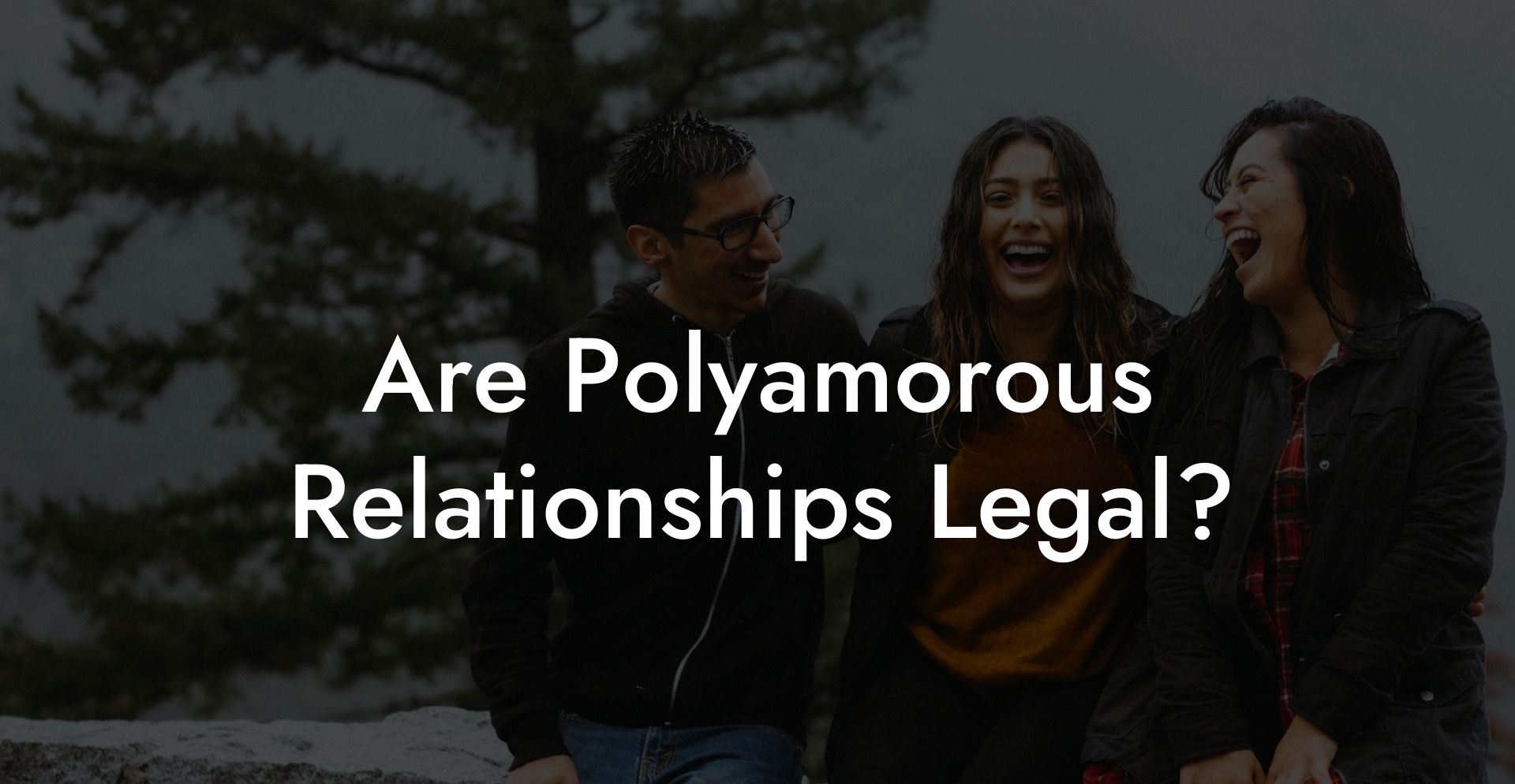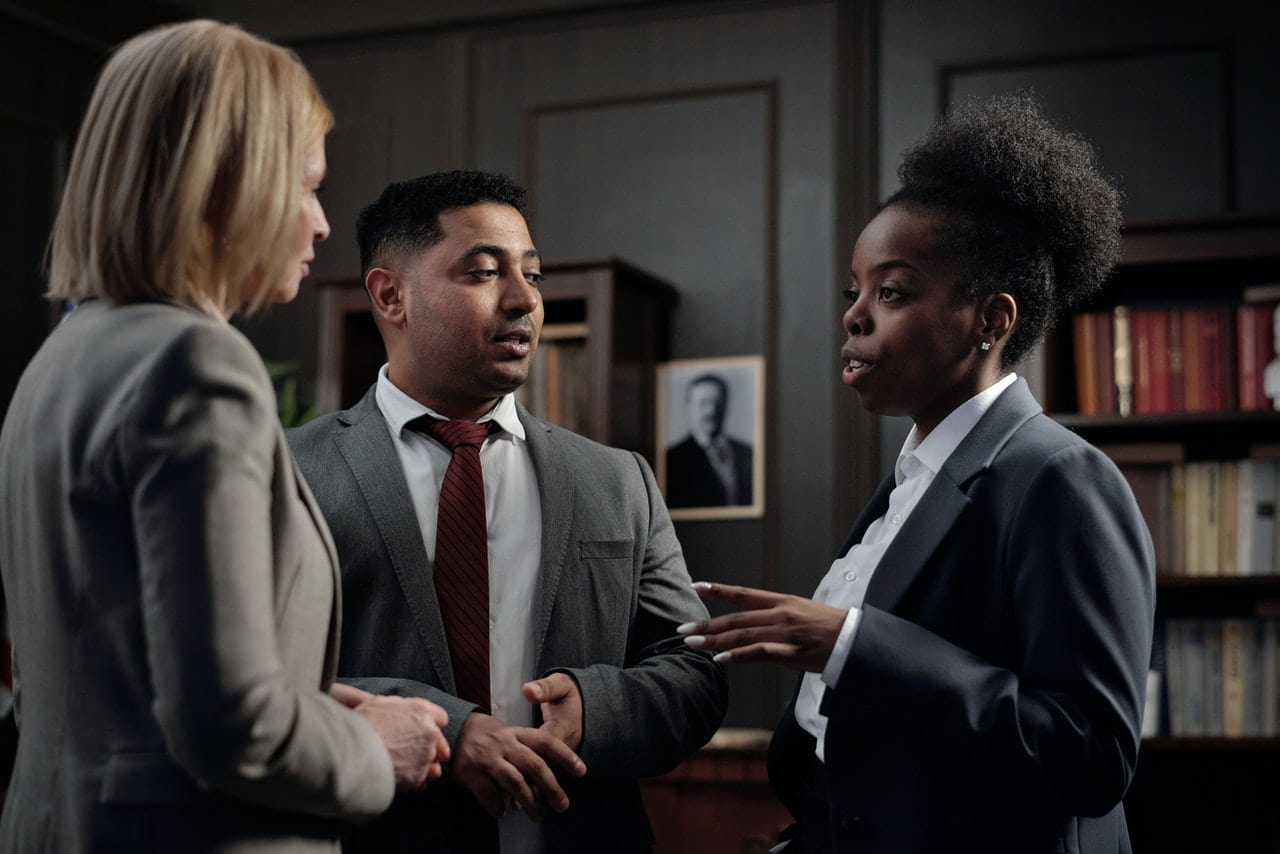Are Polyamorous Relationships Legal - What You Need To Know
For many people, how relationships work is changing, and folks are exploring different ways to connect. One way people are finding love and companionship is through polyamory, where individuals have more than one loving connection, with everyone involved knowing about it and agreeing. It's a way of living that challenges old ideas about what a relationship can be, and it's becoming more visible across the country.
This shift brings up some really big questions about how our laws fit with these newer ways of being together. People often wonder, for instance, if these kinds of relationships have any standing in the eyes of the law. It’s a pretty important point, especially when it comes to things like family matters, money, or even getting help if something goes wrong. We're going to look at what the rules say right now and what that means for people who choose this path.
So, we'll talk about what the current legal picture looks like for these kinds of connections, from city rules that offer some support to the wider state and national frameworks that often don't quite catch up. It's about figuring out where things stand for people in these relationships, and what steps are being taken to help them get the same kinds of protections others have, too it's almost.
Table of Contents
- What's the Current Status - Are Polyamorous Relationships Legal?
- Local Progress - Where are Polyamorous Relationships Legal?
- How Does Law Treat Polyamory - Are Polyamorous Relationships Legal in Practice?
- Everyday Life Without Recognition - Are Polyamorous Relationships Legal But Unprotected?
- Standing Up for Rights - How are Polyamorous Relationships Legal Protections Growing?
- Important Steps for Protection - What Makes Polyamorous Relationships Legal and Secure?
- The Future Outlook - Will Polyamorous Relationships Legal Standing Change?
What's the Current Status - Are Polyamorous Relationships Legal?
When people ask if polyamorous relationships are legal, the answer can feel a bit like a puzzle. Generally speaking, being in a polyamorous relationship, where you have multiple partners with everyone's full knowledge and permission, is not against the law. You won't get into trouble just for having these kinds of connections. Adults are free to be in more than one loving, romantic connection without facing direct legal trouble for it, as a matter of fact. However, that doesn't mean the law gives these relationships the same kind of official nod that it gives to a traditional marriage, for example.
The core idea here is that while you can be in these relationships, the formal systems of government often don't see them as a single, legally tied unit. This means that while polyamory itself isn't criminal, a marriage with multiple people, sometimes called plural marriage, does not have any legal standing. So, you can't officially marry more than one person at a time in the United States, or in most places around the globe, either. This distinction is pretty important to keep in mind, you know.
Across the United States, the rules about relationships tend to stick to the idea of two people being together in a formal, recognized way. This means that for many legal situations, like who gets to be a child's parent in the eyes of the law, or who can make medical choices for someone, the system usually only accounts for two individuals. This traditional view shapes a lot of how the law works and what it sees as a "legally binding relationship," basically. It's a big part of why polyamorous relationships, while not illegal, often lack formal recognition.
Local Progress - Where are Polyamorous Relationships Legal?
Even though broad federal or state laws might not directly address polyamory, some smaller government bodies, like city councils, have started to make changes. For instance, some towns in the United States have made it possible for domestic partnerships to include more than two people. This is a step toward acknowledging different family structures and offers some protections that weren't there before, in a way. Places like Berkeley, California, have been at the forefront of this kind of change, offering new legal protections for people in polyamorous relationships in their area.
We've also seen situations where courts have made rulings that push the boundaries of what's been typical. There was a case in New York City, for example, where a judge made a decision that went against previous legal patterns, suggesting a broader view of family. These sorts of individual cases, while not changing the law everywhere, show that there's a growing conversation and a willingness to look at relationship structures in new ways. It’s a slow process, but these moments are pretty significant, actually.
It's worth noting that these local changes are not widespread. The rules vary quite a lot depending on where you are. So, while some cities might be moving forward, other places, like Utah or Mississippi, or even parts of California outside of specific cities, might not see similar changes anytime soon. This means that even if polyamorous relationships are legal in the sense of not being criminal, the amount of formal support or recognition you get can be very different depending on your address, you know.
How Does Law Treat Polyamory - Are Polyamorous Relationships Legal in Practice?
Even if polyamorous relationships are legal in the sense that you won't be arrested for being in one, the lack of official recognition creates a lot of practical problems. Without that formal nod from the law, it becomes really hard to get the kinds of protections that married couples or even recognized domestic partners often take for granted. This includes things like health insurance benefits that extend to partners, getting certain tax advantages, sorting out child custody if a relationship ends, or being able to make medical choices for someone you care about deeply, as a matter of fact. These are all areas where the law generally expects a two-person bond.
In most places, if you're in a polyamorous family, the laws around parenting rights usually stick to the idea of only two parents. This can make things really complicated for children who have more than two loving adults involved in their lives, especially if there's a need to determine who has legal rights and responsibilities. Property matters can also get tricky. When relationships end, property division is typically based on who owns what on paper, or what's considered community property in places that have those rules. Without formal recognition, shared assets among multiple partners can become a real headache to sort out, obviously.
This situation often means that people in polyamorous relationships might not have any inherent legal rights that come with their relationship itself. They have to find other ways to protect themselves and their loved ones. This is why things like cohabitation agreements, where partners write down how they'll handle money, property, and other aspects of their shared lives, become really important. Powers of attorney and living wills also become essential tools to make sure that medical decisions and asset protection are handled the way everyone wants, you know.
Everyday Life Without Recognition - Are Polyamorous Relationships Legal But Unprotected?
The everyday reality for people in polyamorous relationships, even though they are legal, can feel pretty unprotected. Because the legal system is largely built around the idea of one-on-one marriages, families with more than two adults often find themselves in a challenging spot. This can lead to difficulties with things like inheritance, where a partner might not automatically receive assets if a loved one passes away, or with medical decisions, as mentioned earlier. It’s a situation where the lack of formal acknowledgment can have really serious consequences for people's lives, essentially.
Sometimes, the lack of public awareness about polyamory means that these families only come to the attention of authorities during difficult times, like a separation or an emergency. When this happens, because the relationships aren't officially recognized, there can be a risk of losing things like child custody, which is a very real concern for many. This is why sharing stories of discrimination and the difficulties people face is so important for helping advance the fight for civil rights, too it's almost.
Even in places like Canada or the United Kingdom, where polyamory itself isn't against the law as long as everyone involved is an adult and gives their permission, similar challenges exist. Canadian laws about polyamorous relationships can be different from one province to another, which makes things confusing. Groups of three partners, sometimes called throuples, might face big problems with things like inheritance, healthcare access, parental rights, and even unfair treatment at work because their relationship isn't officially seen by the law. So, while polyamorous relationships are legal, the path to gaining full protections is still quite long and winding, you know.
Standing Up for Rights - How are Polyamorous Relationships Legal Protections Growing?
Despite the current challenges, there are people and groups actively working to change things and promote more legal recognition for polyamorous relationships. Organizations like the Polyamory Legal Advocacy Coalition are teaming up with law students and professors from places like Harvard Law School to push for more rights. They're trying to find ways to make sure that people in these relationships get the same kinds of protections that other families have, as a matter of fact. This work involves looking at how existing laws can be interpreted and how new laws might be created to include diverse family structures.
The push for change isn't just happening in courtrooms or law schools. It's also about raising public awareness and showing that polyamory is a relationship structure that's becoming more common and accepted in society. There are events and gatherings for the polyamorous community where people can meet, build connections, and share their experiences. This visibility helps to challenge old ideas and shows that these relationships are a social fact, whether or not they are officially recognized by the government, you know.
In recent years, we have seen some small steps forward in acknowledging different relationship forms. However, these changes are often quite limited and can differ greatly from one state or region to another. For example, while some cities have passed local rules, there are currently no states that officially recognize or offer full legal protections for polyamorous relationships as marriages. This means that while polyamorous relationships are legal in the sense of not being criminal, the fight for full legal equality and protection is still very much ongoing, actually.
Important Steps for Protection - What Makes Polyamorous Relationships Legal and Secure?
Since official legal recognition for polyamorous relationships is still quite limited, individuals and families often need to find creative ways to protect their rights and their shared lives. One of the most important tools is creating formal written agreements. Things like cohabitation agreements can lay out how partners will handle finances, shared property, and responsibilities, which can be very helpful if a relationship changes or ends. These documents are essentially contracts between the people involved, and they can offer a level of protection that isn't automatically provided by law, you know.
Beyond cohabitation agreements, other legal documents like powers of attorney and living wills are incredibly important. A power of attorney allows one person to make financial or medical decisions for another if they become unable to do so themselves. A living will, also called an advance directive, states a person's wishes for medical care. These tools become even more important for polyamorous people, ensuring that their chosen partners can act on their behalf in critical situations, something that might not happen automatically if the relationship isn't legally recognized, as a matter of fact.
Estate planning is another area that needs careful thought for polyamorous families. Since inheritance laws typically favor legally married spouses or direct blood relatives, creating a clear estate plan, including wills and trusts, is essential for making sure that assets are distributed according to everyone's wishes. This helps protect the financial well-being of all partners and any children involved. It's about being proactive and taking steps to secure your future, given the current legal situation, essentially.
The Future Outlook - Will Polyamorous Relationships Legal Standing Change?
The legal landscape for polyamorous relationships is certainly in motion, even if it moves slowly. While it seems unlikely that cities in places like Utah or Mississippi, or even certain parts of California, will quickly adopt widespread polyamory ordinances, stranger things have happened, you know. The trend of growing acceptance and visibility for diverse relationship structures suggests that conversations about legal recognition will continue to evolve. Advocacy groups and individuals will keep working to challenge existing laws and push for more inclusive policies.
It's important to remember that polyamory is more than just a relationship structure with multiple partners; it's a social fact, a way of life for many people. Kitty Chambliss, a relationship coach who works with the polyamorous community, explains that it's about "multiple loving relationships with the consent and understanding of everyone involved." This focus on consent, honesty, and genuine connection is a key part of what polyamory is, and it's something that resonates with many people, as a matter of fact.
While polyamorous families might not gain a lot in the way of state or federal rights very quickly, the efforts to secure legal protections continue. The changes we've seen in places like Berkeley and the groundbreaking court decisions, even if isolated, show a path forward. The ongoing work by legal advocates and the increasing openness about polyamory in society mean that the question of "are polyamorous relationships legal" will likely see more nuanced answers in the years to come, with a growing emphasis on securing rights and protections for all involved, you know.
This discussion has covered the current legal situation for polyamorous relationships, noting that while they are generally not illegal, they lack formal recognition. We looked at how this impacts practical aspects like health insurance, property, and parenting rights, and explored local advancements in recognition. We also talked about the efforts of advocates and the important steps individuals can take, such as creating legal agreements, to protect their relationships in the absence of broader legal frameworks.
- Is Judge Judy Republican
- Highlights Hair Short Hair
- What To Wear With Boat Shoes Women
- Butch Built Blonde
- Sofia Vergara Feet

Are Polyamorous Relationships Legal? - The Monogamy Experiment

Legal Issues and Legal Recognition or Polyamorous Relationships

InStyle